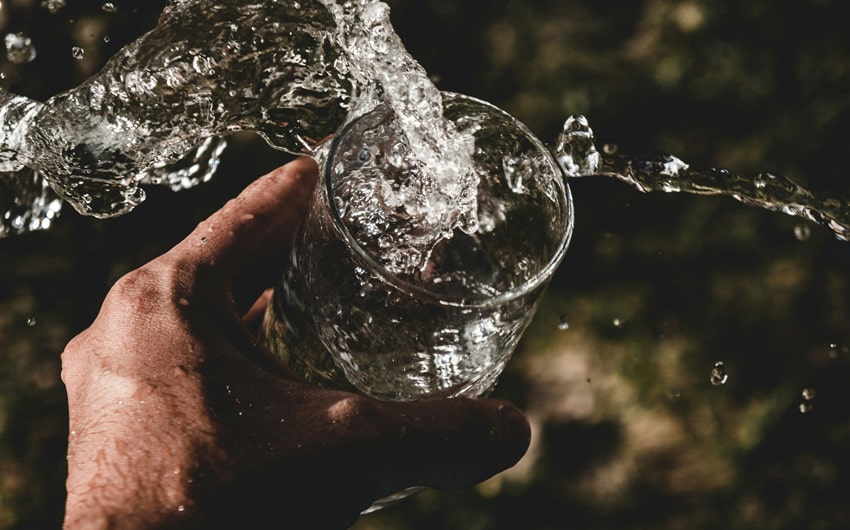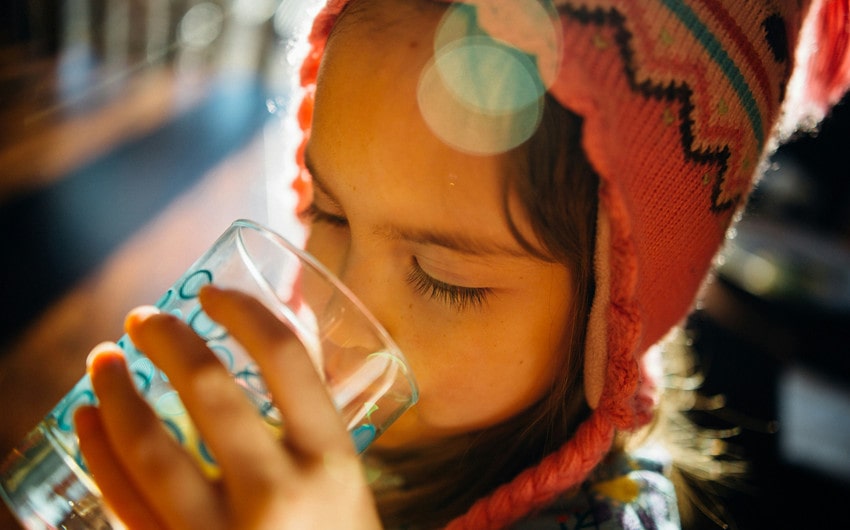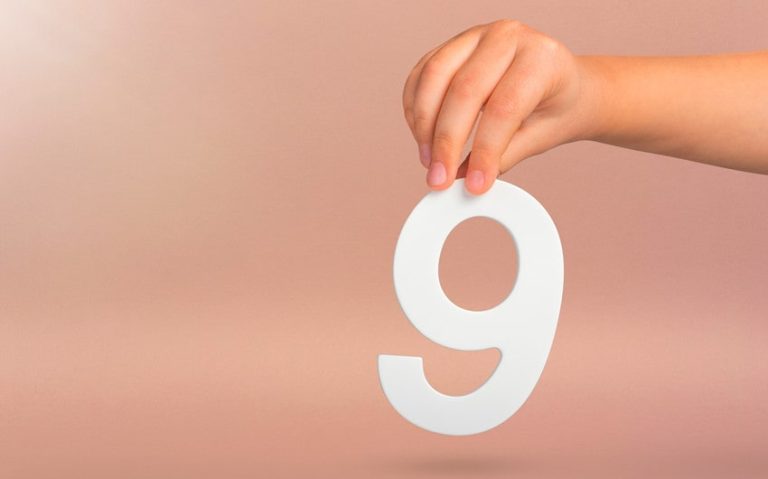How Many Ounces of Water Should I Drink a Day for Health?
Staying hydrated is essential for your health, but you may be wondering, how many ounces of water should I drink a day? While the common recommendation is about 64 ounces (eight 8-ounce glasses), your actual needs depend on factors like your weight, activity level, and environment. Proper hydration keeps you energized, helps digestion, and supports overall well-being.
In this article, we’ll break down the factors that influence how much water you really need and provide tips to make sure you’re drinking enough each day.
General Guidelines for Daily Water Intake
A common recommendation for daily water intake is the “8×8 rule,” which suggests drinking eight 8-ounce glasses of water a day, equaling about 64 ounces. While this is a helpful starting point, it’s not a one-size-fits-all solution. The 64-ounce guideline is a general estimate that works for many people, but your individual needs may be higher or lower depending on various factors like your body weight, activity level, and climate. For some people, especially those who are more active or live in hotter environments, 64 ounces may not be enough.
The Institute of Medicine recommends around 3.7 liters (about 125 ounces) per day for men and 2.7 liters (about 91 ounces) for women, which includes all fluids from beverages and food. It’s important to remember that water needs can also come from hydrating foods like fruits and vegetables. The key takeaway is that while 64 ounces can be a helpful guideline, it’s essential to listen to your body’s signals and adjust your water intake based on your personal circumstances and lifestyle.

Factors That Influence How Much Water You Need
Several factors impact how much water your body requires daily. These factors vary from person to person and can change based on lifestyle, environment, and health conditions. Here’s a closer look at the main influences on your daily water needs:
• Body Weight and Size
Your body weight and size significantly affect how much water you need to stay hydrated. Larger individuals require more water because their bodies have more mass to maintain, and more water is needed for basic bodily functions. As a general rule, some health experts suggest drinking about half an ounce to one ounce of water for every pound of body weight.
For example, if you weigh 150 pounds, you should aim to drink between 75 and 150 ounces of water per day, depending on your activity level and environment.
• Physical Activity
If you’re active, you’ll need more water to compensate for the fluids lost through sweat during exercise. The more intense your workout, the more water you’ll need to stay hydrated. Even moderate activities like walking or light gardening can increase your water needs, especially if you’re in a hot environment.
A good guideline is to drink an extra 12 ounces of water for every 30 minutes of exercise. Athletes or individuals who engage in high-intensity activities may require even more water to prevent dehydration.
• Climate and Environment
Your environment plays a significant role in how much water you need. If you live in a hot or humid climate, you’ll naturally lose more water through sweat, meaning your hydration needs will be higher. Even cold, dry climates can increase your water requirements, as the dry air can dehydrate your skin and respiratory system.
Spending time at high altitudes also causes increased water loss through faster breathing and urination, making hydration especially important for people living in or traveling to higher elevations.
• Diet and Salt Intake
What you eat can also impact how much water you need. A diet high in salt, protein, or sugar can increase your body’s demand for water, as your kidneys require extra water to process these substances.
Similarly, people who consume large amounts of caffeine or alcohol may need more water, as these substances can act as diuretics, increasing urination and leading to fluid loss. On the other hand, eating a diet rich in hydrating foods like fruits and vegetables can help supplement your water intake, reducing your need for additional fluids.
• Health Conditions and Medications
Certain health conditions and medications can also affect your water needs. For example, if you’re pregnant or breastfeeding, your body requires more water to support both you and your baby. People with kidney issues, diabetes, or other medical conditions may also need to adjust their water intake based on their doctor’s recommendations. Additionally, some medications can cause dehydration or increase water loss, requiring you to drink more fluids to stay properly hydrated.
Calculating Your Personal Water Needs
While general guidelines like the 8×8 rule or the standard 64 ounces of water per day can be useful, it’s important to calculate your personal water needs based on your body’s unique requirements. Factors like your body weight, activity level, and environment all influence how much water you should actually drink daily. Here’s how you can estimate your specific water intake to ensure you’re staying properly hydrated.
• Calculating Water Intake Based on Body Weight
One of the simplest ways to calculate your personal water needs is to use your body weight as a starting point. A common guideline is to drink half an ounce to one ounce of water for every pound of body weight. For example:
- If you weigh 150 pounds: You should drink between 75 and 150 ounces of water per day, depending on factors like activity level and climate.
- If you weigh 200 pounds: You should drink between 100 and 200 ounces of water per day.
This method gives you a more individualized range of water intake, allowing you to tailor your hydration needs to your specific body size. Keep in mind that your water needs may fluctuate depending on your daily routine. For example, on more physically active days, you’ll need to increase your water intake to replace the fluids lost through sweat.
• Adjusting Water Intake for Physical Activity and Exercise
Physical activity is a key factor in determining how much water you should drink each day. If you exercise regularly, you’ll need more water to stay hydrated. A good rule of thumb is to drink an additional 12 ounces of water for every 30 minutes of exercise. If you’re engaging in intense workouts or exercising in hot weather, you may need even more.
Here’s an example:
- If you work out for an hour: You should drink at least an extra 24 ounces of water to replace the fluids lost through sweat.
- For high-intensity workouts: Consider increasing your water intake further, especially if you’re sweating heavily or exercising in a hot environment.
Drinking water before, during, and after exercise can help maintain hydration levels and improve performance. Be sure to pay attention to how your body feels—if you’re feeling thirsty, fatigued, or lightheaded during exercise, these are signs that you need to hydrate more.
• Factoring in Your Environment and Climate
Your environment plays a major role in your daily water needs. If you live in a hot, humid climate, or spend a lot of time outdoors in the sun, your body will lose more water through sweat, which means you’ll need to drink more to stay hydrated. Even in cold or dry climates, water loss can occur through the skin and respiratory system, so it’s important to adjust your water intake accordingly.
For example, if you live in a hot climate and spend significant time outdoors, consider increasing your water intake by 20-30% to compensate for the extra fluid loss. Similarly, if you’re at a high altitude, where breathing faster can lead to dehydration, you may need to drink more water than you would at sea level.
• Using a Hydration Calculator
If you want to get more precise, you can use a hydration calculator to estimate your daily water intake based on factors like your age, weight, activity level, and environment. These calculators can give you a more detailed idea of how much water you should be drinking each day, factoring in the unique circumstances of your lifestyle. By inputting personal information, you can get a tailored recommendation that suits your specific hydration needs.
• Listen to Your Body’s Signals
While calculating water intake based on numbers is helpful, it’s also important to listen to your body’s natural signals. Thirst is the body’s way of telling you it needs hydration, but you shouldn’t wait until you’re thirsty to start drinking water, as this can be a sign of early dehydration. Other indicators include dark urine, dry mouth, fatigue, or dizziness. If you notice these signs, it’s a good idea to increase your water intake, even if you’ve already met your calculated daily goal.

Signs You’re Not Drinking Enough Water
Staying hydrated is essential for your overall health, but it can be easy to overlook the subtle signs that you’re not drinking enough water. Dehydration doesn’t always hit you suddenly—often, it starts with small signals from your body. Here are some key signs that indicate you might need to increase your water intake:
• Dry Mouth and Thirst
One of the most immediate and obvious signs that you’re not drinking enough water is a dry mouth. When your body is dehydrated, it reduces saliva production, which can leave your mouth feeling dry and uncomfortable. You might also experience a constant feeling of thirst, which is your body’s way of signaling that it needs more water. If you’re feeling thirsty frequently, it’s a clear sign that you need to drink more water throughout the day.
However, don’t wait until you’re thirsty to start hydrating. Thirst is often a late-stage indicator that your body is already dehydrated. Make it a habit to drink water regularly, even when you don’t feel parched, to stay ahead of dehydration.
• Dark Urine and Decreased Urination
Another common sign of dehydration is a change in the color and frequency of your urine. When you’re well-hydrated, your urine should be pale yellow or clear. If you notice that your urine has become dark yellow or amber, it’s a sign that your body is conserving water because you’re not drinking enough.
In addition, dehydration often leads to less frequent urination. If you’re only urinating a few times a day or your trips to the bathroom are noticeably less frequent, it’s a strong indicator that your water intake is insufficient.
To prevent dehydration, aim to urinate at least four to seven times per day, and monitor the color of your urine. Consistently dark urine means you should increase your water intake.
• Fatigue and Low Energy
Water plays a crucial role in maintaining your energy levels. When you’re dehydrated, your body has to work harder to carry out its normal functions, which can lead to feelings of fatigue and sluggishness. If you find yourself feeling unusually tired or lacking energy—especially after a full night’s rest—dehydration might be to blame. Without enough water, your blood volume decreases, leading to less oxygen circulating to your muscles and brain, which can leave you feeling drained.
If you’re frequently feeling fatigued or sluggish, try drinking more water throughout the day to boost your energy levels. Hydration helps your body function optimally, keeping you alert and energized.
• Headaches and Dizziness
Dehydration can cause headaches and even dizziness in some cases. When your body is low on water, it can affect the fluid balance around your brain, leading to headaches. Additionally, dehydration can cause a temporary drop in blood pressure, which may make you feel lightheaded or dizzy, especially when standing up too quickly.
If you’re prone to frequent headaches or experience episodes of dizziness, it could be a sign that you’re not drinking enough water. Increasing your water intake can often help alleviate these symptoms and prevent them from occurring in the future.
• Dry Skin and Lips
Your skin is one of the first places dehydration shows up. When you’re not drinking enough water, your skin can become dry, flaky, and less elastic. Dehydration reduces the skin’s ability to retain moisture, leading to dryness and irritation. Similarly, your lips may become chapped or cracked, even if you’re using lip balm regularly. Hydrated skin looks and feels smoother, while dry, dehydrated skin may appear dull and rough.
If you notice that your skin or lips are consistently dry, despite using moisturizers or lip balms, it’s likely a sign that your body needs more water. Drinking more water can help restore your skin’s natural moisture balance and improve its overall appearance.
• Constipation and Digestive Issues
Water is essential for proper digestion, and not drinking enough can lead to constipation and other digestive discomforts. When you’re dehydrated, your colon absorbs more water from the food you eat to compensate, which makes your stools harder and more difficult to pass. This can result in constipation, bloating, and discomfort.
If you’re struggling with irregular bowel movements or notice that your stools are hard and difficult to pass, increasing your water intake may help improve your digestion and prevent constipation. Drinking enough water helps keep your digestive system running smoothly and supports overall gut health.
• Bad Breath
Dehydration can also lead to bad breath. When your body isn’t producing enough saliva due to a lack of water, bacteria in your mouth can grow more rapidly, leading to an unpleasant odor. Saliva plays an important role in washing away food particles and bacteria, so when your mouth is dry, bacteria can thrive and cause bad breath.
If you’ve noticed a persistent bad taste in your mouth or bad breath that doesn’t go away with brushing, it might be a sign that you’re not drinking enough water. Staying hydrated helps keep your mouth clean and fresh, reducing the likelihood of bad breath.
• Muscle Cramps
Muscle cramps, especially during physical activity, can be a sign of dehydration. Water helps your muscles function properly by delivering electrolytes and nutrients to muscle cells. When you’re dehydrated, this process is disrupted, and your muscles are more prone to cramping and spasms. If you often experience muscle cramps during or after exercise, it could be because you’re not drinking enough water to replace the fluids lost through sweat.
To prevent muscle cramps and keep your muscles functioning smoothly, make sure you’re drinking plenty of water before, during, and after physical activity.
• Difficulty Concentrating
Dehydration can also affect your cognitive function, making it harder to concentrate, focus, and stay alert. When your brain isn’t getting enough water, it can lead to a lack of mental clarity and reduced cognitive performance. You may find it harder to stay focused on tasks, experience brain fog, or struggle with memory retention.
If you’ve noticed that you’re having trouble concentrating or feeling mentally fatigued, increasing your water intake can help improve your cognitive function and keep your brain sharp throughout the day.
Can You Drink Too Much Water?
While staying hydrated is essential for good health, it’s also possible to drink too much water, a condition known as water intoxication or hyponatremia. This occurs when you consume excessive amounts of water in a short period, diluting the sodium levels in your bloodstream. Sodium is an essential electrolyte that helps regulate water balance in and around your cells.
When sodium levels drop too low, it disrupts your body’s normal functions, leading to potentially serious health issues. Though rare, overhydration can happen, especially to athletes or individuals who drink large quantities of water without replenishing electrolytes.
Symptoms of overhydration can range from mild to severe, including nausea, headaches, confusion, and in extreme cases, seizures or coma. The body relies on a delicate balance of water and electrolytes, and when this balance is thrown off by too much water intake, the brain can swell, causing neurological issues.
People who are most at risk for water intoxication include those participating in endurance sports, like marathons, where they might drink excessive amounts of water without also consuming sodium or other electrolytes to balance fluid loss from sweating. It’s important to listen to your body’s signals and drink water steadily rather than forcing large amounts at once, especially if you’re not actively losing fluids through sweating or physical activity.
To prevent overhydration, it’s essential to remember that more water isn’t always better. A good rule of thumb is to drink when you’re thirsty and avoid excessive water consumption if your activity level doesn’t warrant it.
Additionally, if you’re exercising for extended periods or in hot conditions, consider electrolyte supplements or drinks that can help replenish both fluids and sodium lost through sweat. Balance is key—drinking enough water to stay hydrated but not so much that it overwhelms your body’s ability to maintain proper electrolyte levels. By paying attention to your body’s needs and drinking mindfully, you can avoid the risks of both dehydration and overhydration.







